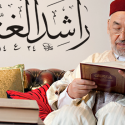In 2002, after years of work on political Islam, French scholar Olivier Roy published a major book on “globalized Islam” *. A revised and updated version of this work has now been published in English.

According to Roy’s analysis, contemporary Islamic projects are becoming increasingly disconnected from a particular territory, partly as a consequence of the failure of all attempts to build an Islamic state. This means that trends are likely to move more and more toward an Islamization of individuals within the context of a global, de-territorialized ummah. This applies to both pietistic movements and radical, political forms of Islam, according to Roy.
Islam is not immune to trends found across all other religions, such as individualization. Islam is more and more often becoming disconnected from a specific culture, as evidenced by the growing number of young Muslims in the West who define their identities primarily or merely as Muslim, instead of defining themselves according to their parents’ origins.
In this interview, Olivier Roy shares some of his observations, as well as developments in his analysis, with the readers of Religioscope.
Religioscope – Your book states that secularization has been proceeding at the same time as the revival of religion. Could you please explain why those two apparently contradictory trends should be seen as convergent ?
Olivier Roy – The new forms of religiosity are becoming increasingly detached from traditional cultures and societies and tend to create new, purely religious communities, based on the “them-and-us” dichotomy. Those who see themselves as born again tend to draw a clear line between the “saved” and “those left behind”, thus implying that true believers are a minority and that main-stream society is already secularized. While these communities tend to organize themselves solely around the tenets of religion, they are becoming increasingly disconnected from social issues and even political ones : it is interesting to see that both contemporary Salafism in Islam and many evangelical movements in Christianity do not care about social issues (contrary to the Islamist movements like the Muslim Brothers in the 1940s and 1950s and Hezbollah in Lebanon, or to the Christian “liberation theology” movements of the 1960s). When they are involved in politics, it is only to embed values in the law (abortion, gay marriage, sharia, adultery, etc.).
Islamists who were pushing for the creation of an Islamic state are giving way to neo-fundamentalists who tend to concentrate on individuals and shun purely political issues. The ummah they are addressing is a transnational one, or even a virtual one, through the Internet.
Religioscope – Islam has now a permanent presence in the religious landscape of Western countries. Do you think that a globalized Islam will actually also favour the rise of an American Islam, of a European Islam, and so on ?
Olivier Roy – I don’t think that there will be something like a European or American Islam, but that global Islam is adaptable to any specific country and culture because it reconstructs religion not on a culture but on a set of norms that are adaptable to different environments : the hallal norm, for instance, is not embedded in a specific cuisine, but could fit in, for example, with fast food. Global Islam is a deculturated Islam. To some extent, it is a Western Islam, not in the sense that it has become more liberal, but that it is based on individuals who voluntarily join a faith community. The forms of religiosity (born-again, stress on salvation, faith community, moral values, anti-intellectualism, self-realization) are modern and shared by many forms of Christian revivalism, but don’t entail a theological reformation (even if we can’t exclude one). Hence the success of Salafism among second-generation Muslims in the West, because it gives some value to their sense of deculturation and uprootedness by refusing to identify Islam with the pristine cultures of their parents ; it thus allows them to be Western, even through denial.
Religioscope – At an operational level, what should be the practical consequences for Western governments looking for appropriate ways to deal with Islam ?
Olivier Roy – Western governments should encourage this process of Westernization without necessarily pushing for a liberal, modern or “civil” Islam. They should avoid any sort of religious engineering, but play on the diversity of Islamic religious revivalism by making room for Islam and treating it on an equal footing with other religions. In fact, the management of Islam should be delinked from the issue of immigration and multiculturalism. Islam should be treated merely as a religion, and not as the expression of ethnic minority groups.
Religioscope – Your book often mentions the role of the Internet : there is a whole chapter on that topic. The Internet can clearly be seen as a facilitator of those developments that you analyse.
Olivier Roy – The Internet is a perfect tool to create an abstract and virtual community of believers delinked from any specific country and culture. The sites are either in English or Arabic, the links refer to a corpus of contemporary thinkers (most of them Salafis, by the way), but anybody is free to choose, quote or follow whomsoever he/she wants.
Moreover, the Internet allows an individual to speak on an equal footing with others. There is no hierarchy of knowledge. The Internet also allows the creation of window institutions : for instance, some websites provide fatwa for people who request them, but there is by definition no compulsory implementation. It is a kind of religious free market, where one can shop for very different products, from fatwas to cooking recipes or matrimonial advice, within leaving one’s room.
Religioscope – The original French edition of your book was published two years ago. Since the English edition is not just a translation, but an updated version of the book, what has changed over the past two years ? Do the developments confirm your original analysis, or have you had to revise some of your assessments ?
Olivier Roy – Recent terrorist actions have confirmed what I said about the de-territorialization and Westernization of the radicals, but I updated the book to give some more input.
I also turned my attention to Islam in the USA, where the Muslims don’t have the same social background as in Europe ; and added more comparison between Islamic fundamentalism and the different forms of Christian fundamentalism. The new factor is, of course, the US intervention in Iraq : it shows that the lack of connection between the Middle East crisis and the globalization of Islam is not perceived by Western political actors, who still consider that the roots of Islamic radicalization are to be found in the Middle East. But what is going on in Iraq has confirmed my view that Islam is not the dominant factor in Middle East politics : Islamist and secularists are no longer fighting each other, but joining forces in a coalition that is primarily nationalist, from the Gaza Strip to Fallujah. Al Qaeda, on the other hand, is a supra-national movement whose first target is the USA, not the local Muslim regimes.
I also extended the comparison with other forms of religious revivalism.
* Olivier Roy,Globalised Islam : The Search for a New Ummah, London : Hurst, 2004 – or click here if you prefer to order the US edition (published by Columbia University Press).
The interview was conducted online in November 2004. Olivier Roy was interviewed by Jean-Francois Mayer.
Source : Religioscope | 8 Nov 2004




iThere are no comments
Add yours